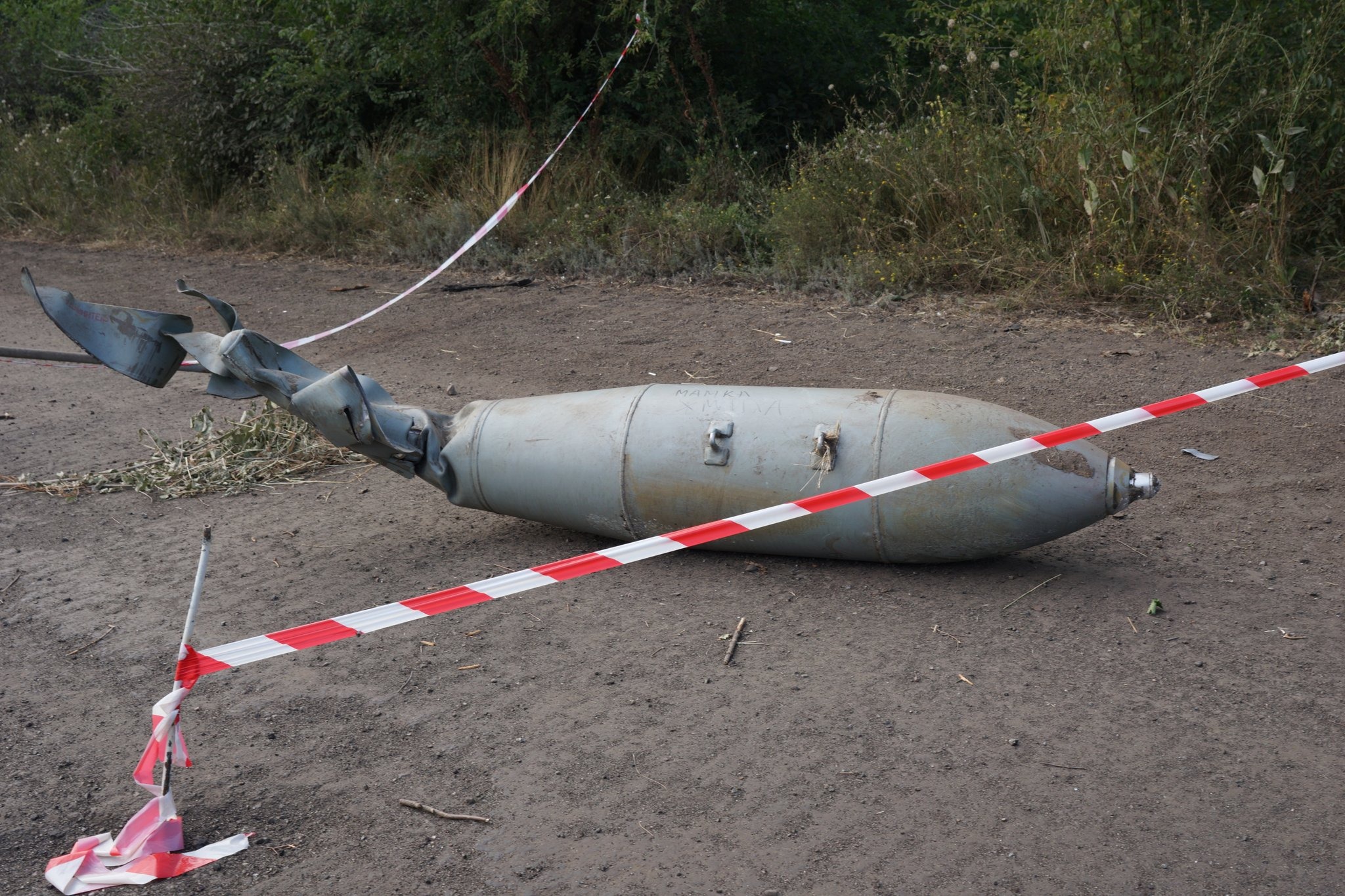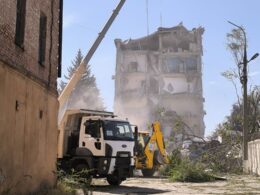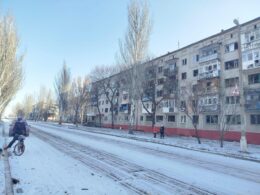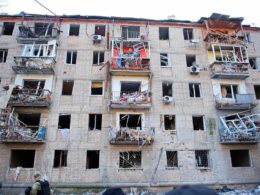A team in the Trap Aggressor project, which investigates Russia’s circumvention of sanctions and production of weapons, has found a large number of foreign components in Russia’s universal planning and correction modules (UPCM) used in aviation bombs and cluster munitions. The aggressor country uses them to enhance the range and precision of air bombs and munitions.
Russia continuously improves its arms manufacturing capabilities, which it employs daily to destroy Ukrainian settlements. However, Moscow still cannot independently produce most of the electronics necessary for manufacturing weapons. Therefore, it searches for shadow parties and companies to import parts and produce its arms, bypassing sanctions, and seems to have succeeded in that.
Russian air-dropped bombs with high-explosive warheads, such as FAB-250, FAB-500M-62, and FAB-1500, played a pivotal role in occupying Avdiivka city in Donetsk Oblast - the invaders have almost wiped the settlement off the face of the earth.
Currently, Russia’s FAB bombs help Russian troops to advance into Ukrainian territory. A bomb also contains about 50% of the explosive material of its total weight, and it is equipped with sturdy casings designed to penetrate soil or obstacles, such as inter-floor structures of buildings and facilities. The designations on the bombs FAB-250, FAB-500, and FAB-1500 denote the weight of the aerial bomb in kilograms — 250, 500, and 1500 kg, respectively.
Additionally, Russians have equipped FAB bombs with guidance systems like the UPCM, with an operational range of 40-60 km. Due to this system, Soviet-era bombs, previously dropped from aircraft without guidance, are now precision-guided. The estimated flight range for a FAB-500 bomb with UPCV is up to 55-60 km.
Trap Aggressor has found that one of Russia’s top producers of aviation bombs and UPCM is the “Balzat” Scientific and Production Association, responsible for the manufacture and supply of armaments and munitions for ground forces, which is part of the Rostec Corporation, and at least two other defense enterprises. According to The Guardian, in 2023, “Bazalt” produced 500 units of UPVC per month.
According to experts, several critical electronic components in the bombs were imported into Russia through China, Thailand, and Türkiye. Trap Aggressor obtained unique information about the Western components used in UMPK. Unfortunately, many of these components have been deliberately obscured or coated with lacquer by the Russians to prevent their identification.
Despite Russian efforts to conceal and coat the names of companies and countries where elements for FAB bombs were produced, Trap Aggression has found that foreign parts in them were imported through China, Thailand, and Türkiye.
According to the investigation, Russia received buffers from Texas Instruments company in the US through China, Thailand, and Türkiye, transceivers from Maxim Integrated company in the USA through China and Thailand, and medium power relays from AXICOM - TE Connectivity in Switzerland through China, Thailand, and South Korea. In addition, at least eight other parts have been discovered in Russian bombs.
In September 2023, Trap Aggressor reported that the company imported Altera programmable valve matrices from China and Türkiye, totaling over $500,000. The suppliers were Xiefeng HK Int L Electronics LTD and Alfatrex Dis Ticaret Limited Sirketi. Additionally, "VNIIR-Progress" imported Taoglas products worth $100,000 from India, with the supplier being SI2 Microsystems Private Limited, which recently faced sanctions from both the US and the EU.
The project has also urged the governments of the US and the EU to include those companies in sanction lists and prevent them from helping Russia breach sanctions through third countries.
Read also:
- Ukraine’s air defense capabilities and the potential for more devastating attacks on critical infrastructure
- ISW: Delayed US military supplies impact the Ukrainian forces’ capabilities to respond to Russian mechanized assaults
- Denmark provides $13.2 million to enhance Ukraine cyber capabilities against Russia





